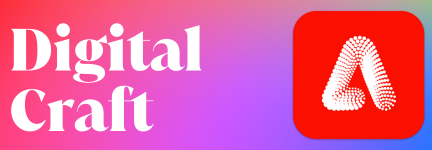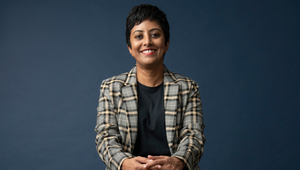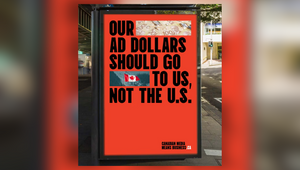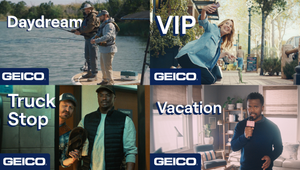
“Technological Artistry” with Jean Lin, Cannes Digital Craft Jury President

“Craft is what people see, feel, hear and experience about a brand. It enables ideas to be evocative,” says Jean Lin in her Cannes Lions president’s message. The global CEO of Isobar is this year’s jury president of the Digital Craft category. It’s not the first time she’s presided over a jury in Cannes - in 2015 she headed up Cyber, an experience that taught her about the importance of pre-judging in shaping the conversation in the jury rooms on the French Riviera.
Outside of her judging responsibilities, Jean thinks that fears around consultancies will once again be a talking point on the Croisette. Her viewpoint? We should embrace that change.
LBB’s Addison Capper chatted with her to find out why.
LBB> This isn’t your first time presiding over a jury at Cannes - how do you prepare yourself for your time in the jury room at Cannes?
JL> In 2015 I led the Cannes Cyber jury, and realised that dedicating the right amount of time to pre-judging is key. It’s here that you start to firm up the principles and the boundaries that bring the judging criteria into reality.
This preparation often leads to rich and interesting conversation in the jury room. Successful juries understand that all eyes will be on us to find that genre-defining work and that we need to leave our agency ties at the door, and judge fairly and impartially.
I will also be armed with Cannes staples - a strong green tea and some stylish but comfortable shoes! Judging means long days and lots of conversation. Making sure your body and your head is in the right place is critical.
LBB> What are you hoping to see from the entries this year? How has the pre-judging been going so far?
JL> We are looking for work that uses craft to connect people to the soul of a great story, in ways that are inspiring and intuitive. Our focus will be on rewarding technological artistry - through flawless design, execution and outstanding user experience.
We also want to reward work that will inspire everyone to be braver in pushing creative boundaries.
LBB> What words of advice will you be giving to your jury?
JL> It is our choices that define what craft means to the marketing industry in 2018. So we will need to take the time to find and reward excellence. We must respect the craft of judging!
LBB> Digital Craft is still a relatively young category - it’s in its third year now. With the advancement of new technologies over that time, how do you feel the category has evolved in that time?
JL> In the last three years it’s become accepted that brand experience needs to travel across a brand’s ecosystem - from inspiration to transaction.
Award-winning digital craft needs to show more than flair for design - it needs to comprehensively change the way the brand feels and it needs to directly link back to its core offering.
Today, brand experiences are choreographed to enable ideas to travel seamlessly across platforms - this is why craft matters.
LBB> The category covers such a vast array of platforms and mediums. What do you think will be the hardest part of judging the entries?
JL> This new creative landscape allows ideas to move across channels and culture, realised through a mixed reality world, triggered by voice, gestures, or even your heartbeat.
You might think that evaluating work on different platforms, which each have differing constraints and implementation requirements, would make judging hard. However the categories are broader than the medium - for example, overall aesthetic design is about the consistency, the fluency and how beautiful the journey is.
When you are in the brand experience, you aren’t thinking about the platform. You are just considering how it makes you feel.
LBB> The transcendent ‘big’ ideas are relatively easy enough to spot, but some work is smart in a more nuanced way, for example work that plays on the subtleties of a particular culture (the challenges of writing copy in Chinese might be different to writing in English or French, for example). When you’re leading a jury, how do you give space to these ideas in the jury room?
JL> I am proud to lead quite a diverse jury, from both a gender and a geographical perspective. We will draw from our own personal experience (for example, I am Taiwanese), and if we are ever in doubt, we Google this local insight!
Normally good case studies help package and highlight the real power behind why a piece of work should be award winning.
I try to keep our focus on awarding globally significant work - even local work can be useful for the global community to learn from.
LBB> What do you think will be the big talking points at this year’s festival?
JL> Work with purpose will continue to be a big trend at the festival - people are willing to take creative risks when they believe their work will change the world. Big risks and big thinking tends to yield big results.
Stories will always be a mainstay - but it will be how ideas are choreographed with omni-channel design and an understanding of real-time data that will be discussed in detail.
We’ll see a lot of AR and VR work, but we’ll be talking about mixed reality as a concept and a brand mechanic rather than the technology its supported by.
People will continue to worry about the impact of consultancies on the industry. But we should embrace this change, because we need businesses and brands to reach business and digital maturity across the world to unlock the potential of creativity.
LBB> How will you be spending the rest of your time in Cannes? Are there any events or talks you’re eager to attend?
JL> I will be in the jury room until Wednesday, with the awards gala on Wednesday evening, so unfortunately I will be missing a lot of good talks. I will be sure to try out Isobar’s innovative prototype for Philips at the Dentsu Aegis Network beach house.















